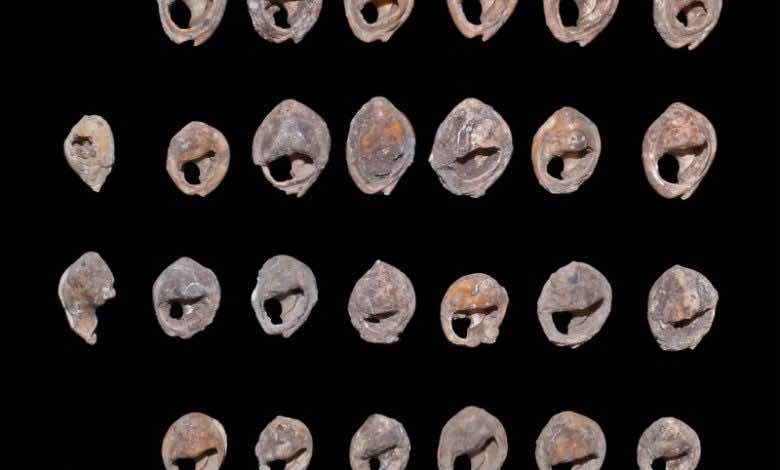Denver – Recent research on personal ornaments recovered from the Bizmoune cave in southwestern Morocco indicates the jewelry could be evidence of the first signs of advanced human culture.
The collaborative academic paper, published by researchers investigating the artifact, stated the ornaments were among the first sign of “symbolic behavior” by early Homo sapiens. Symbolism is one of the key early indicators of abstract thought and advanced cognition in humanity.
The paper specifically referred to the 33 shell beads found in the Bizmoune caves. The shell beads are speculated to be over 142,000 years old. This would place the artifacts less than 300,000 years after the current oldest recorded human ancestor.
The new findings suggest a shortened period of time between the initial emergence of humans and the evolution of the first primitive cultures. The jewelry would be placed in the late Middle Pleistocene, the same geologic time period as the earliest documented emergence of humanity.
The findings from the Bizmoune cave represent a remarkable shift in preconceived notions of early human culture. Primitive jewelry was used as “a means of communicating aspects of identity.” Researchers also relayed the findings are “widely interpreted as evidence for expanding social networks and complexity of social interactions.”
The evolution of the jewelry found in Morocco has been observed in the rest of North Africa, as well as the Levant. The common usage of a specific shellfish for the bead’s material indicated a common cultural practice that stretched thousands of miles across the ancient Mediterranean.
The researchers concluded by rejecting the preconceived academic focus on southern Africa as a focal point of early human civilization. The findings marked a dramatic shift in how researchers will now piece together the early development and spread of Homo sapien culture. With the latest anthropogenic findings, future research on the early origins of humanity will be sure to take a dramatic shift, forever changing the course of the story of humanity.
















